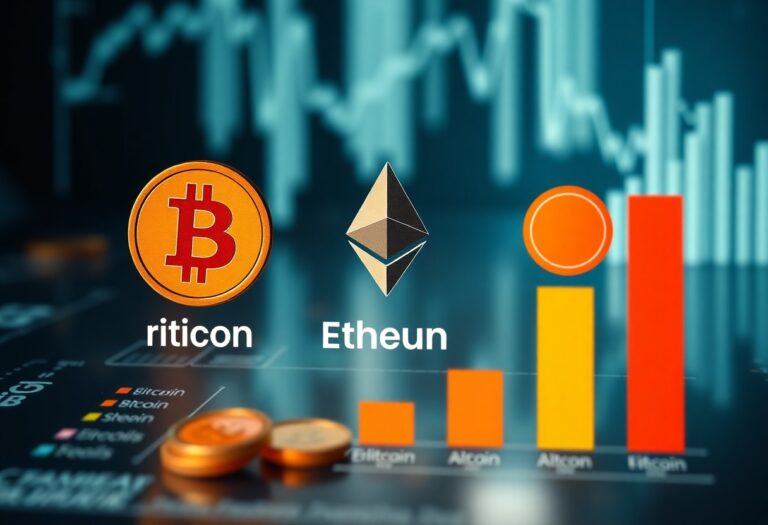What Is DeFi (Decentralized Finance) and Why Does It Matter?
DeFi represents a revolutionary shift in the financial landscape, enabling you to access financial services without traditional intermediaries. By harnessing blockchain technology, DeFi offers transparency, security, and innovation, allowing you to lend, borrow, and trade assets directly. However, it also carries risks such as potential hacks and regulatory challenges, making it necessary for you to navigate this space with caution. Understanding DeFi and its implications can empower you to make informed financial decisions in this rapidly evolving ecosystem.
Understanding DeFi
Definition of Decentralized Finance
The term Decentralized Finance, or DeFi, refers to a financial system built on blockchain technology that operates without traditional intermediaries such as banks or financial institutions. This ecosystem allows you to engage in financial activities like lending, borrowing, and trading with just a smartphone or computer. By leveraging smart contracts, DeFi provides a trustless and transparent environment where transactions can occur directly between participants.
Before diving deeper into its significance, it’s important to understand that DeFi represents a significant shift in how you manage financial assets. Traditional finance often relies on centralized authorities that can manipulate or control assets, introducing risks and inefficiencies. In contrast, DeFi empowers you to retain control over your assets, allowing for a more democratic and open financial landscape.
Key Components of DeFi
Between the various facets of DeFi, you can identify several key components that lay the foundation for this revolutionary system. These components include decentralized exchanges (DEXs), lending platforms, stablecoins, and liquidity pools. Each of these elements plays a vital role in facilitating financial transactions free from the constraints of conventional finance.
For instance, decentralized exchanges allow you to trade cryptocurrencies directly with others, enabling better pricing and faster transactions. Lending platforms grant you the ability to earn interest on your digital assets by providing them to borrowers, generating passive income. Stablecoins offer a means of trading without the volatility of typical cryptocurrencies, while liquidity pools ensure there are always funds available for trading and lending. Overall, these elements not only expand your financial opportunities but also introduce new risks and challenges to navigate within the DeFi space.
The Advantages of DeFi
Some of the most significant advantages of decentralized finance (DeFi) lie in its ability to provide enhanced accessibility and inclusivity. You can access DeFi platforms from anywhere in the world, as long as you have an internet connection. This eliminates many of the barriers that traditional financial systems impose, such as geographical limitations and restrictive banking hours. As a result, you can participate in financial activities without needing an intermediary, making it easier for underserved populations to gain access to crucial financial services.
Accessibility and Inclusivity
The inclusivity characteristic of DeFi enables you to engage in self-sovereign financial activities without discrimination based on socio-economic status or geographic location. Regardless of your background, you can access various financial products, including lending, borrowing, and trading services. This democratization of finance fosters a more equitable environment where individuals can manage their wealth independently.
Transparency and Security
One of the defining features of DeFi is its transparency and security. You can verify transactions on the blockchain, ensuring that all activity is visible and immutable. This level of transparency not only strengthens trust in the system but also allows you to audit protocols easily. As DeFi operates on open-source platforms, you hold the power to review the code and understand how your funds are managed.
In fact, the security measures inherent in DeFi can protect you against fraud. Many decentralized finance platforms utilize smart contracts, which automate transactions and enforce agreements without the need for intermediaries. These systems are designed to minimize human error, and the distributed nature of blockchain technology makes it significantly harder for malicious actors to manipulate or compromise your assets. While no system is entirely without risk, the structure of DeFi can enhance your overall financial security.
Popular DeFi Applications
If you are exploring the DeFi landscape, you’ll encounter various applications that transform traditional financial systems. Each application serves a unique function, promoting decentralization, transparency, and accessibility in finance. By using these platforms, you can engage in financial activities without intermediaries, allowing for more control over your assets.
Decentralized Exchanges (DEXs)
To understand the significance of decentralized exchanges (DEXs), consider how they differ from traditional centralized exchanges. DEXs allow you to trade cryptocurrencies directly with other users through smart contracts, eliminating the need for a central authority. This model enhances your privacy and security, giving you full ownership of your funds while minimizing risks of hacking and centralized failures.
Lending and Borrowing Platforms
At the heart of DeFi are lending and borrowing platforms, which facilitate peer-to-peer transactions without the influence of intermediaries. You can lend your assets to earn interest or borrow assets by providing collateral. This model democratizes access to credit and empowers you to exploit opportunities in the market.
Applications in lending and borrowing offer both benefits and risks. You can leverage your assets for borrowing with lower interest rates compared to traditional banks, all while benefiting from immediate liquidity. However, it’s vital to be aware of liquidation risks if the value of your collateral falls significantly. Engaging in these platforms requires caution to navigate volatile market conditions effectively.
Risks and Challenges in DeFi
Unlike traditional finance, DeFi brings unique risks and challenges that you must consider. The decentralization principle offers autonomy but also exposes you to vulnerabilities that can lead to significant financial losses. Relying on algorithms and smart contracts invites risks such as bugs or exploits, potentially resulting in your assets becoming inaccessible or stolen. The complexities involved mean that even small mistakes can have severe consequences for your portfolio.
Smart Contract Vulnerabilities
Behind the promise of automation and transparency in DeFi lie the potential smart contract vulnerabilities that can jeopardize your investments. Smart contracts are computer programs that automatically execute transactions when conditions are met, but they depend heavily on the quality of coding. If a smart contract contains a bug or an exploitable flaw, hackers can manipulate it to drain funds from your wallet. Being aware of the smart contracts you interact with is imperative; performing due diligence can help safeguard your investments against these risks.
Market Volatility and Regulatory Issues
Volatility is a hallmark of DeFi, and you need to be prepared for price swings that can result in substantial gains or losses. The lack of regulation and oversight often leads to sharp market movements, catching many investors off-guard. Additionally, the evolving nature of regulations can introduce uncertainty, putting your financial interests at risk. Understanding both market behaviors and the regulatory landscape is key to navigating these challenges effectively.
Challenges arise from the intersection of market volatility and the potential for regulatory intervention. As DeFi projects gain popularity, governments are increasingly scrutinizing the sector, which may lead to unforeseen regulatory implications that affect your holdings. Changes in regulations could impose limitations on how you can utilize your assets or interact with DeFi protocols, making it imperative to stay informed about both market trends and legislative developments.
The Future of DeFi
To understand the future of DeFi, you must consider its rapidly evolving landscape. As technology continues to advance, potential developments such as cross-chain interoperability, enhanced security measures, and more sophisticated financial instruments are on the horizon. These innovations will likely make DeFi systems more accessible and user-friendly for a broader audience, empowering you to manage your assets with greater flexibility and autonomy.
Potential Developments and Innovations
Across the DeFi ecosystem, you can expect a constant stream of innovations that will reshape financial interactions. The rise of decentralized insurance, for instance, could provide you with ways to protect your investments without the need for traditional insurance companies. Additionally, advancements in smart contract technology may lead to more complex financial products, allowing you to engage in various investment strategies that were previously inaccessible.
Integration with Traditional Finance
For traditional financial institutions, the integration of DeFi presents both opportunities and challenges. This synergy could result in new financial products that combine the strengths of both systems, offering you more choices and competitive rates. However, regulatory concerns and market volatility may complicate this relationship, as traditional players must navigate the uncertain waters of a decentralized framework while ensuring compliance.
For instance, banks and other financial entities may begin collaborating with DeFi platforms to create hybrid solutions that leverage blockchain technology, offering you enhanced security and transparency. By bridging the gap between these two worlds, you could access innovative services, lower transaction costs, and improved transaction speeds, all while enjoying the benefits of greater financial autonomy over your assets.
Summing up
Conclusively, understanding DeFi empowers you to navigate a rapidly evolving financial landscape. DeFi represents a paradigm shift in how financial services operate, enabling you to access a range of products without intermediaries. By leveraging blockchain technology, you can manage your assets, lend, borrow, and trade in ways that align with your financial goals, offering you greater control and transparency.
This matters because it democratizes finance, allowing you to participate in global financial systems regardless of your location or background. As traditional financial barriers diminish, you have the opportunity to engage with innovative services that can enhance your wealth-building potential while fostering a more inclusive economic environment.







